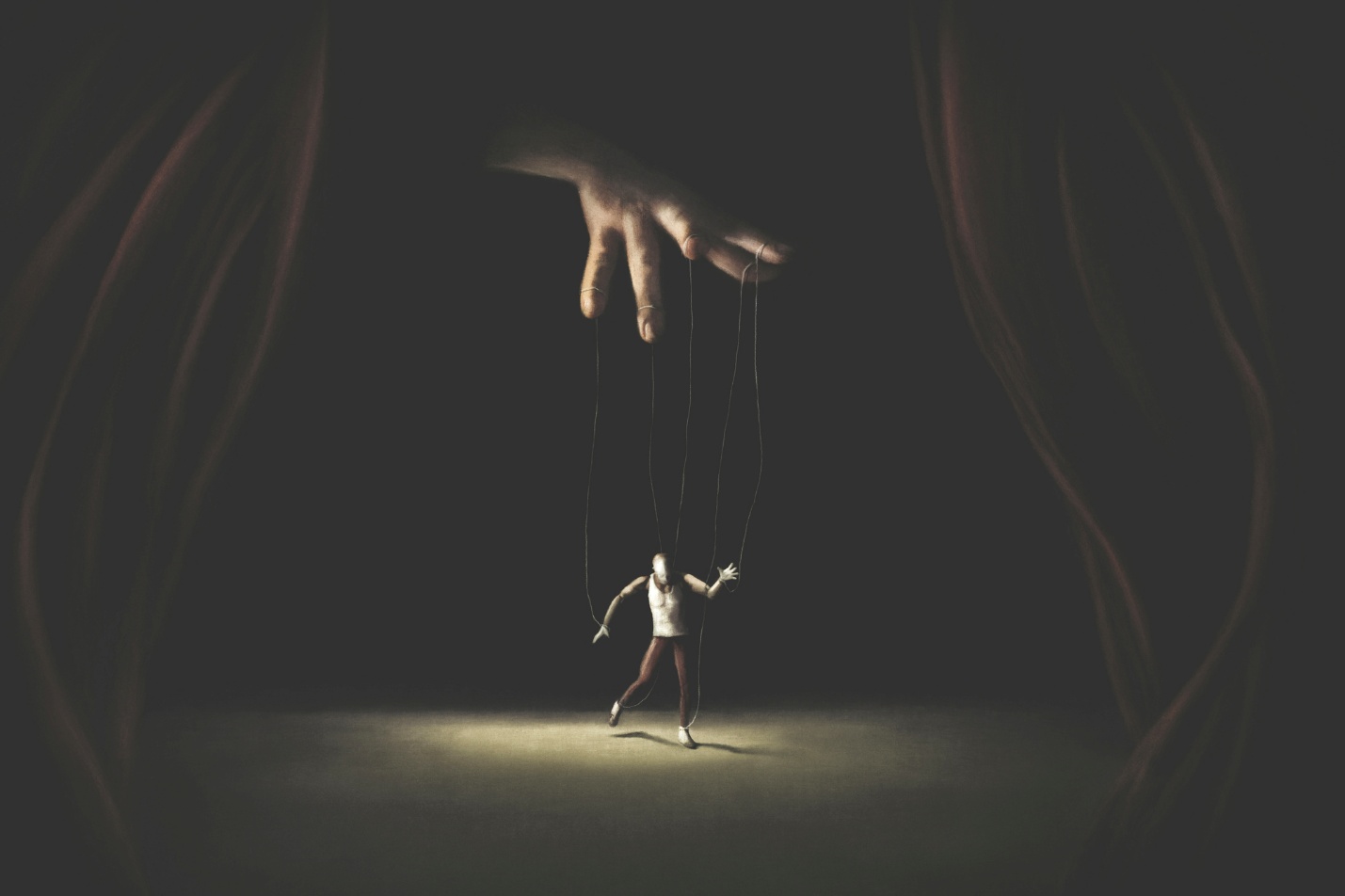BP 241
[This post is a bit of a reprise on an earlier post that includes quotes from Irvin D. Yalom but with added material]

“While there is no solution to existential isolation, therapists must discourage false solutions. One’s efforts to escape isolation can sabotage one’s relationships with other people. Many a friendship or marriage has failed because, instead of relating to, and caring for, one another, one person uses another as a shield against isolation” ~ Irvin D. Yalom from Love’s Executioner
There once was a girl named Julia. She felt happy and warm in her family with her father, mother, and younger brother, Ryan. Life felt ideal to her, like a bird’s safe nest or a bear’s cozy den. Then badness struck her life, and the safety and happiness disintegrated.
The first bad thing happened when Julia was only four years old. Her father abruptly left the family for another woman. Julia didn’t see it coming. She had no way to prepare for it. He never came back.
To that four-year-old girl, her dad’s leaving felt like a death, and even worse–an abandonment. The feeling she felt in her little body was so strong she couldn’t breathe or sleep. She didn’t know that it was grief. It just felt very, very bad. She thought she was going to die. A part of her wanted to die.
From that day on, Julia hated surprises. Surprises were scary. They were bad.
The second bad thing occurred when Julia was nine. Her seven-year-old brother, Ryan, fell through the ice on the pond a block away from their house and drowned. Julia did not see it coming. She had no time to say goodbye or brace herself for the suddenness and the shock of it. It was another death. Another abandonment. She felt totally powerless, at the mercy of loss.
Julia already hated surprises. Now she despised them with all her heart. Surprises ripped people away from her. Surprises left her feeling grief so strong that she was rendered emotionally and physically paralyzed. She made up her mind to never to be surprised again. She wanted to be ready for the bad things that were coming so that, ideally, she could have power to even prevent them from happening.
Beyond her conscious awareness, she decided to control things. Even though she had gone to church all her life, she obviously couldn’t trust God to keep bad things from happening. She couldn’t trust her father not to do bad things. She couldn’t trust her depressed mother to be strong and take care of her. So, the answer was simple: she had to be strong.

Julia became a puppeteer, a marionettist. She closed off her heart to love and trust and instead embraced power and control. She became obsessed with manipulating her environment to keep her safe from tragic surprises. Her favorite song had been “Trust and Obey.” Now her freshly written hymn was “Be Strong and Take Care of Yourself.”
Things only became worse for Julia at age 11 when her favorite uncle took her into his bedroom and touched her inappropriately. She couldn’t believe what was happening. She never saw it coming. Her uncle never touched her again because Julia made sure it didn’t happen. She controlled his presence. She made sure she was never alone with him again.
The sexual abuse was yet another hated surprise. It was another loss. This time, her uncle died to her. She would never trust him again. Julia resolved even more intensely to never be surprised by anyone or anything ever again. In her eleven year old mind, she thought that if she controlled everything, she could prevent bad surprises from happening.
The puppeteer in her grew even stronger until it became Julia. She had no awareness, of course, that she experienced another loss at that time, namely, the loss of her own self. She no longer was a girl who could trust, love, attach—even in her relationship with God. She had now fully become the marionettist who would control her life, the life of others around her, and even God. In effect, she became a child goddess.
Julia lost the ability to love others. Instead, she loved what people did for her. She loved them when they submitted to her control, when they complied with her need to prevent them from being surprising for her. No, she could not let people be separate from her with their own will and emotions and needs because then they would be unpredictable.
Since surprises were her greatest fear (especially the surprise of people leaving her), she had to train people to do what she wanted, what would not scare her or worry her. She had to compress them into her mold, her vice grip.
Julia became a master puppeteer. She became stronger than everyone around her, including her mother. She would have made a strong leader of a country but a dangerous one because she would effectively be a dictator.
Years passed and Julia went to college. She was academically stellar and felt superior to her professors. She knew she was wiser than them and stronger. She had a few boyfriends, but they all left her (more surprises) when they encountered her desire to control them. So, she stopped dating anyone until she could sense from afar which man would be the right . . . puppet.
Julia finally found the right marionette two years after she graduated from college. His name was Peter, and Peter was prepared to be a puppet. Why? He had grown up with a marionettist. No one would have been able to live with Julia if they weren’t already accustomed to living in the same house with a puppet master.
Peter’s mother trained him to live with and one day even marry a puppet master. Without going into a deep explanation here, Peter’s mother, Mary, had emerged from childhood very emotionally fragile and, like Julia, needed to control her environment. She demanded that everyone around her become who she needed them to be. They couldn’t be themselves. They had to be what she insisted they be to keep her “safe” and comfortable.

Yes, Peter had been prepared to marry a puppeteer. The truth was that he wouldn’t have been able to live with anyone else. He had been taught to be so dependent on a controlling woman that he would never have been attracted to a woman who would expect him to be strong, or at least independent. He needed to be fused with a woman. He needed her to control him. He didn’t have much of a self apart from who the woman told him to be.
In some ways, Julia had a dilemma: She loved Peter for being moldable and impressionable to fit her exacting desires, but she also was angry with him for being so passive and for taking such little initiative, for being a boy. But a boy is what she demanded. A boy would never leave her because he would be too dependent on her. A man would be too independent and would never submit to Julia’s suffocating control.
As Yalom puts it, “A common, and vigorous, attempt to solve existential isolation . . . is fusion—the softening of one’s boundaries, the melting into another . . . One of the great paradoxes of life is that self-awareness breeds anxiety. Fusion eradicates anxiety in a radical fashion—by eliminating self-awareness. The person who has fallen in love, and entered a blissful state of merger, is not self-reflective because the questioning lonely I (and the attendant anxiety of isolation) dissolve into the we. Thus one sheds anxiety but loses oneself” (p. 11).
Neither Peter nor Julia was a true self, an independent self, even an interdependent self. Peter had been taught to accommodate himself to “fit” his mother, not be who God had made him to be. Julia had forsaken her true self who was scared and grieved and lonely and instead became the controlling puppeteer. She not only controlled everyone around her, but she also controlled herself. She didn’t see either form of control. She only knew that she could never be the little girl who was so terribly devastated by surprises.
Both Peter and Julia were subconsciously looking for each other. He needed a woman to fit his false compliant self who would be his master since he had no self who could take initiative. He wasn’t strong enough to be in charge of himself. Julia needed a man who, unlike her father, would never leave her because he was so dependent on her that he could never survive apart from being merged with her.
Fused. Merged. Two half people joined into one “whole” self. This oneness was what both Julia and Peter were subconsciously searching for—what they both demanded. The marionette needed the marionettist to control his movements and his thoughts with her strings and the marionettist needed a marionette who would submit to her demands to have a man who would never be separate enough to surprise her, leave her, or abuse her.
Julia and Peter were a match made in . . . the chaos of their childhoods, the mental illness of their families of origin. Because what is mental illness but the loss of the true self, the functioning out of half a self while the other half is split off and stored in some dark dungeon, the creation of merger.
Briefly detouring to psychobabble, Julia exhibited features of a borderline personality disorder: someone who feared abandonment; who split others and herself into all good or all bad; who needed people (and God) outside of her to behave in an exact way to regulate her volatile internal state; and who would become enraged if someone dysregulated her with surprises that endangered her need for fusion and compliance. Julia would do everything in her power to avoid the torture of separateness because both her father and brother had separated from her in such a grotesque fashion.

Peter, on the other hand, exhibited many of the characteristics of Dependent Personality Disorder. He didn’t like or maybe didn’t even know how to make decisions; he leaned heavily to passivity, even submissiveness; he could not disagree with others; in his own way, he feared abandonment because his mother would often leave him when she was angry; and to please others who might be upset with him, he was willing to do anything—including having a high threshold for mistreatment and emotional abuse.
So, Peter was perfect for Julia who required a dependent person who would never upset her fragile emotional equilibrium, and Julia was perfect for Peter who needed someone to control him and inform him when he was good or bad and even tell him who he was. Peter could not exist without Julia and Julia could not exist apart from Peter. They were two half people who fused into one. All was good. Until . . .
A day came when Peter was driven to look for help outside the bubble of his merged relationship with Julia. A conflict with a female boss triggered something in Peter that broke him open. Anxiety and depression inundated him. He became a zombie, as it were. He had little to no eye contact, he spoke in a voice so quiet that it was difficult to hear him, and he was quite dead emotionally. He had become a shell of a person which wasn’t much less than what he had been even before the breakdown.
The instant Peter began his counseling journey, the fusion with Julia was endangered. In fact, early on in therapy, Peter learned that he was not a separate person but was merged with other people, especially women, most notably his wife. His psychological symptoms were not surprising. Indeed, they were quite appropriate. They were not the problem. They pointed to the deepest issue: Peter was dead. He didn’t exist.

Almost surprisingly, Peter had enough motivation (maybe the depression drove him) to begin the journey of developing a self and to continue moving forward over a period of months and then years. All the while, Julia became more irritable with her husband as he slowly developed a self and began to have a voice. He slowly left the zombie self behind as he developed steady eye contact and a louder voice.
Things became exceptionally intense in the marriage when Peter began to get angry with Julia for controlling him with manipulative comments like, “You’re the problem in this marriage. You know that, right? All the problems with our two children stem from your irritability and your selfishness. If you take care of your problems, our marriage will be fine. A godly man would never treat me the way you do. No other woman would tolerate your selfish ways. You’re not a safe man. You’re abusive and dangerous.”
After five years of therapy, Peter had the lynchpin epiphany that he was choosing to be in a relationship with a woman who, like his mother, demanded that he behave in a way that would not surprise her or make her feel separate and alone. After the zombie phase, he had pictured himself as the victim who felt enslaved by his wife. Now he was able to see that he had freely given his power to his wife and was responsible for his captivity in the merged relationship. After all, merger requires mutual consent.
After the epiphany, many truths became clear to Peter. He began to recognize that Julia was a puppet master who had tied him to her puppeteer strings so she could control him. He discerned that she rewarded him (even with sex) if he was good (merged with her) but punished him if he began to separate from her. Julia perceived separateness whenever Peter was angry with her, disagreed with her, wanted to spend time with his friends, and whenever he did not take a position of compliant submission.
He grieved over the truth that Julia probably did not truly love him as Peter but only loved him for what he did for her. If he was a good compliant husband who allowed her to control him and so give her the peace that comes from merger, he was lovable. If he refused to be a puppet on her strings, she withdrew her “love” and castigated him for being a bad and selfish man.
The saddest truth for Peter was that Julia did not want him to grow. Not really. Growth was dangerous and would make him confident and more able to separate from her. Compliance and the zombie mode were what Julia demanded from her husband and even her children. Since her most terrifying fear was being shocked by abandonment and subsequent aloneness, she had to create dependency in her husband and children so they would never be able to function without her. Then they would never leave her like her father and brother had done.
Julia was not a bad woman. She didn’t set out to “domesticate” her husband and children into compliance and dependence or to kill their true selves. However, her methods of engineering their dependence were not loving. They were manipulative and selfish, all designed to protect her from the anxiety of loss. Ironically, her attempts to create puppets who would never leave her only incited in the puppets an anger toward her that made them want to leave and escape her iron-handed control.

Love was never the objective for Julia. Love was dangerous and painful. It had to be avoided, even killed. After all, her father loved her mother and ended up leaving her. Julia’s most pressing desire was to manipulate others to remain attached to her. Since love was not trustworthy, control was the best option.
Yalom also wrote, “Beware the powerful exclusive attachment to another; it is not, as people sometimes think, evidence of the purity of love” (p.11).
After Peter’s epiphany, things happened fast. He pursued freedom from his wife and refused to walk in the way of the puppet. He no longer blamed Julia for controlling him as he did in the victim phase. He owned the fact that he had chosen Julia because she fit his need to be mothered the way his mother had mothered him. In some ways, it was easier and safer to be a zombie because then he didn’t have to grow or be responsible for himself. But now he chose to be the Peter God had made him to be. He chose to be a strong man and not a fawning boy. But oh how difficult was the transition!
As Peter grew separate from the puppet master, Julia’s health began to deteriorate. As she increasingly lost control of her husband and then her angry children, she tried to blame Peter for what was happening. But when the children came to their father’s defense, Julia eventually began to fracture emotionally. Her thirty-year-old paradigm began to implode.
Julia would not admit that she was a marionettist. She refused to look inside and see her part in the fusion dynamic. Instead, the scaffolding that had held her self together since she was four, collapsed and she was taken to the mental health locked ward at a local hospital. She remained there for two weeks. When she was released, she finally began individual therapy that focused on her growth and her profound habit of blaming those who dared be free from her control.
The story is ongoing.
What is the spiritual angle on this story of Peter and Julia? Men and women are created in God’s image. We are capable of amazing developments in technology, medicine, and engineering. But to the degree to which humans can do amazing things apart from the soul and relationships, they are equally capable of dark sinful practices that protect themselves at great cost to those around them. They use projection, control, manipulation, shame, and even annihilation to defend against their fears and to build an impenetrable wall of self-protection.
Tragically, Julia had never submitted to God. She did not trust Him since, in her eyes, God allowed her father to leave and her brother to drown and her uncle to abuse her. Since even God was not trustworthy, she took over the control of her life. She became god. She was never wrong. If there was a conflict with others like her husband, he was always bad, and she was good. She could never admit she was wrong or her whole puppeteer system of survival would have been undone.

The psychological, spiritual, and relational truth to be gleaned from the story of Peter and Julia is to beware of desiring fusion, either as the puppeteer or the puppet. Both roles are dangerous to one’s heart and soul. The puppeteer never looks inside to grow but is constantly managing the people around her so they won’t surprise her, hurt her, or leave her. The puppet chooses to remain dependent (usually driven by fear and shame) and does not grow and so avoids the responsibility of becoming the person God made him or her to be. The puppet often is attracted to the position of passive-aggressive power instead of active assertiveness.
In conclusion, I return to Yalom. I agree with this intelligent man that in this universe there exists interpersonal isolation, intrapersonal isolation, and existential isolation. I do not agree with Yalom, however, when he states that the existential isolation is “the unbridgeable gap between self and others, a gap that exists even in the presence of deeply gratifying interpersonal relationships” (p. 10).
Why does he believe that ultimately all relationships are subject to a distance that can never be bridged? Because he believes four truths about the world: 1) death is inevitable for all of us; 2) we all have the freedom to choose our life trajectory; 3) we are ultimately alone in the universe; 4) “obvious meaning and sense to life” (p. 5) are absent from our existence.
These are the words of an atheist or maybe an agnostic. Either way, you cannot know God and experience an existential intimacy with Him and other people. We are condemned to walk through this world alone even when we are interpersonally close to others. When God does not exist, existential aloneness and isolation is what Julia and the rest of us face. How tragic and sad.
Yalom has totally missed the truth of the mystical union with Christ that eradicates existential aloneness. But he might be partly right: apart from Jesus, there exists a great gap that is characterized by separation and profound aloneness. Where would men and women be without the love of the Son of God who died for us that we might draw near to God?
The last question to be asked here is if Julia created her existential aloneness by building a wall between her and other people due to her fear of being surprised with abandonment? I believe the answer is yes. In creating the very thing that she thought would protect her, she undermined interpersonal closeness with others and intrapersonal closeness with her true self.
So, be careful how you cope and what you choose to believe when you have been hurt. Don’t cope by cutting off your self from others and don’t believe that you can never trust anyone else ever again but must become a puppet master who does not give or receive love but who controls her self and everyone around her. Unhealthy and uninformed responses to the fear of being alone can very well leave you even more alone.
Instead of building two walls—one against unsafe others and one to distance you from your own wounded and messy heart—run to the throne so that “we may receive mercy and find grace to help in time of need.”
Don’t run away. Run toward. With confidence. Because He invited you to come!

As we have said in the past here at DTFL, don’t protect yourself so well that you guard yourself even against love. Don’t be a god unto yourself. Tear down every wall designed to keep suffering out and you isolated inside. After all, the space in between is such a narrow and lonely place to live.
In fact, you can’t live there; you can only exist there. All by yourself.
“For though we walk in the flesh, we are not waging war according to the flesh. For the weapons of our warfare are not of the flesh but have divine power to destroy strongholds [even the walls we have built]. We destroy arguments and every lofty opinion raised against the knowledge of God, and take every thought captive to obey Christ” ~ 2 Corinthians 10:3-5
“Come to me, all who labor and are heavy laden, and I will give you rest. Take my yoke upon you, and learn from me, for I am gentle and lowly in heart, and you will find rest for your souls” ~ Matthew 11:28
